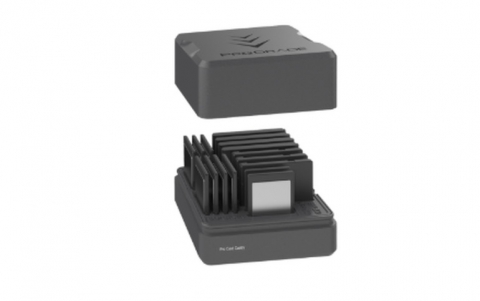
CoreOS App Container Spec Gains Support From Tech Companies
Today is the inaugural CoreOS Fest, the community event for distributed systems and application containers, CoreOS announced that it has signed up four major backers to its App Container specification in a bid to provide the industry with a container standard. CoreS will try to challenge Docker's de facto standard for containers in the data center. It's an uphill battle, given that Docker is already widely used by developers, and has momentum as a de facto standard in the marketplace. The App Container spec (appc) provides a definition on how to build and run containerized applications. Announced in December, the appc spec emphasizes application container security execution, portability and modularity. rkt, a container runtime developed by CoreOS, is the first implementation of appc.
Appc has gained support from various companies in the community, including Google, Apcera, Red Hat, VMware and Intel.
During today's CoreOS Fest event, Intel’s Nicholas Weaver shared how Intel is working with CoreOS to scale and accelerate adoption of its Tectonic suite – a solution for enterprises and cloud service providers transitioning to distributed, container-based software infrastructure. Intel supports the hyperscale container movement, and believes it will help democratize cloud computing by making it easier to operate with the agility and efficiency previously only used by a few highly advanced cloud service providers. At the event, Intel also demonstrated how the combination of the CoreOS portfolio and Kubernetes, running on a Supermicro system, is anticipated to have a big impact on mainstream businesses.
Google has furthered its support of appc by implementing rkt into Kubernetes and joining as a maintainer of appc.
Apcera has announced an additional appc implementation called Kurma.
Red Hat has assigned an engineer to participate as a maintainer of appc while
VMware, recently announced how they will contribute to appc and shipped rkt in Project Photon.
Red Hat was an early endorser of the Docker Engine. It also recently made generally available its version of Linux, Atomic Host, to run Docker and other containers.
Interstingly, Red Hat is also a direct competitor of the CoreOS host system for running containers, so the fact that that the industry's largest open source firm is endorsing a competitor's work is important.
VMware recently announced how they will contribute to appc and shipped rkt in Project Photon.
In order to ensure the specification remains a community-led effort, the appc project has established a governance policy and elected several new community maintainers unaffiliated with CoreOS: initially, Vincent Batts of Red Hat, Tim Hockins of Google and Charles Aylward of Twitter.













